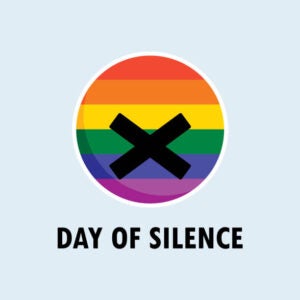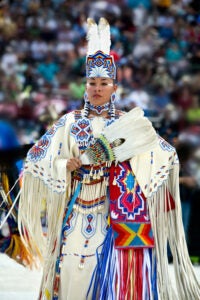Spring Has Sprung
Throughout many cultures and religions, the season of Spring represents growth, rebirth, and new beginnings. With the new and higher weather, our connection to nature and each other grows stronger. Holidays such as Ramadan, Passover, and Easter are approaching, which leaves us many opportunities to reflect on the past and look forward to the future.
April is Celebrate Diversity Month, a month-long celebration which recognizes and honors the diversity surrounding us all. By celebrating differences and similarities during this month, we hope that people will gain a deeper understanding of each other.
April 2 – World Autism Awareness Day (People with Disabilities)
World Autism Awareness Day was adopted by the United Nations on 18 December 2007. The day was proposed by Mozah Bint Nasser Al-Missned, the United Nations Representative from Qatar, to raise awareness about the importance of helping people with autism improve their quality of life so that they can live full and meaningful lives as contributing members of society.
Autism, often known as autism spectrum disorder, is a group of conditions marked by challenges with social skills, repetitive behaviors, speech, and nonverbal communication. Autism has many subtypes, and each person with autism has their own strengths and challenges. Autism Speaks, an autism advocacy charity and the largest autism research organization in the United States, celebrates the entirety of April as World Autism Month.
April 2 – Ramadan (Islamic)
Ramadan is an annual observance that commemorates Muhammad’s first revelation. The holiday, which is considered one of Islam’s Five Pillars, takes place throughout the Islamic calendar’s ninth month and is observed by Muslims all over the world. The month is celebrated through fasting (sawm), prayer, spiritual reflection, self-improvement, and community.
Each day, before dawn, Muslims observe a pre-fast meal called the suhoor, which is followed by Fajr, the first prayer of the day. The fast (sawm) begins at dawn. The act of fasting is said to redirect the heart away from worldly activities, such as the consumption of food, and towards faith and spirituality. Muslims believe that Ramadan teaches them to practice self-discipline, self-control, sacrifice, and empathy for those who are less fortunate, thus encouraging actions of generosity and compulsory charity (zakat).
But the celebration does not end there. Learn more about fasting and more affairs of the celebration here.
April 8 – The Day of Silence
The first National Day of Silence was organized by Maria Pulzetti and Jessie Gilliam in 1996. The two University of Virginia students created the holiday to make an impact on their fellow students. During the National Day of Silence, lesbian, gay, bisexual, transgender, and queer (LGBTQ+) and their straight allies take a daylong vow of silence to protest the bias and harassment that (LGBTQ+) students face every day. In 1997, Day of Silence went national, with almost 100 colleges and universities participating.
In 2001, the Gay, Lesbian & Straight Education Network (GLSEN), an American education organization dedicated to ending gender- and sexual orientation-based discrimination, harassment, and bullying in K-12 schools, became the holiday’s official organizational sponsor. Since its inception as a national and GLSEN-sponsored holiday, the National Day of Silence has attracted over 10,000 participants from middle schools, high schools, colleges, and universities.
Learn more about how you can get involved here.
4/15 – 4/23 – Passover (Jewish)
The eight-day Jewish holiday of Passover, also known as Pesach (Hebrew: “to pass over”), is celebrated in the early spring, from the 15th through the 22nd of the Hebrew month of Nissan. The holiday commemorates the emancipation of the Israelites from slavery in ancient Egypt. Passover is traditionally observed by avoiding leaven (bread or dough), participating in Seder — which are feasts that include four cups of wine, matzah, and bitter herbs — and retelling the story of the Exodus.
“Passover” is derived from the Hebrew word Pesach which is based on the root “pass over”. The name refers to the fact that God “passed over”, or spared, the houses of the Jews during the last of the ten plagues on the eve of the Exodus. The holiday has agricultural significance as well, as it represents the beginning of the harvest season in Israel.
Learn more about the origin of the holiday here.
4/17 – Easter (Christian)
Easter is a Christian festival and cultural holiday commemorating the resurrection of Jesus from the dead, described in the New Testament as having occurred on the third day of his burial following his crucifixion by the Romans at Calvary c. 30 AD. It is the culmination of the Passion of Jesus, preceded by Lent, a 40-day period of fasting, prayer, and penance.
Christians refer to the week before Easter as Holy Week, which in Western Christianity contains the days of the Easter Triduum including Maundy Thursday, commemorating the Maundy and Last Supper, as well as Good Friday, commemorating the crucifixion and death of Jesus. Painted and decorated Easter eggs, one of the most famous Easter symbols and activities, dates back to the 13th century. The egg itself became a symbol of the new life emerging, just as Jesus rose from the tomb.
Learn more about Easter and the origin of Easter Eggs here.
4/22 – Earth Day (International)
Earth Day commemorates the beginning of the modern environmental movement in 1970. There were no legislative or regulatory procedures in place to preserve our environment prior to 1970, such as the Clean Air Act or the Clean Water Act. Senator Gaylord Nelson (D-WI) launched Earth Day in the spring of 1970, as many people were beginning to notice humanity’s adverse effects on the environment. That winter, Congress authorized the founding of the United States Environmental Protection Agency, a new federal agency charged with addressing environmental challenges.
Earth Day.org hosts a variety of events, such as:
- The Great Global Cleanup, a worldwide campaign to remove billions of pieces of trash from neighborhoods and natural areas;
- The Canopy Project, which improves our shared environment by planting trees and reforesting areas in dire need of rehabilitation; and, participating in
- Sustainable Fashion, an ecologically and socially responsible clothing supply chain that is working toward sustainable practices in sourcing, production, distribution, marketing, and consumption.
See how you can participate in Earth Day activities here.
4/21 – 4/23 – Gathering of Nations (Native American)
The Gathering of Nations is a Native American Indian 501(c)3 non-profit organization which promotes Native American and American Indian (Indigenous) culture and tradition, while also dispelling stereotypes about Native American Indians and indigenous people. Founded in 1983, the event of the same name draws in over 785 tribes from around the United States and Canada, making it the largest pow-wow in North America.
Native American Indians and indigenous people compete in dance and signing competitions, a Miss Indian World pageant, and an Indian Traders Market with artists, crafters, and traders selling Native American and Indigenous arts and crafts during the course of the multi-day event.
Learn more about this year’s festivities here.